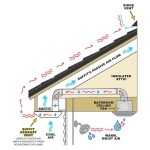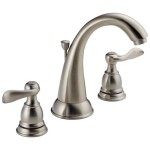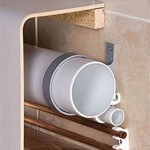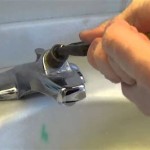Musty Smell Under Bathroom Sink: No Leakage
A musty smell emanating from under your bathroom sink, even without any apparent leakage, can be a frustrating and perplexing problem. This odor often indicates a build-up of moisture, mold, mildew, or other organic matter, leading to an unpleasant olfactory experience in your bathroom. Understanding the potential causes and identifying the source of the smell will be crucial to resolving the issue effectively.
Potential Causes of a Musty Smell
The presence of a musty smell under the bathroom sink, absent any visible leaks, can be attributed to several underlying causes. These include:
- Condensation: The warm, humid environment of a bathroom can lead to condensation forming on the pipes and surrounding surfaces under the sink. This moisture can provide a breeding ground for mold and mildew, producing a musty odor.
- Poor Ventilation: Inadequate ventilation allows moisture to linger in the bathroom environment, contributing to the growth of mold and mildew. This can be exacerbated by factors such as a lack of windows or an ineffective exhaust fan.
- Hidden Leaks: While no visible leaks are apparent, a slow, persistent leak within the plumbing system under the sink could be the culprit. This leak, even if microscopic, can provide a continuous source of moisture, promoting the growth of mildew and bacteria.
- Residual Moisture: Even after a visible leak is resolved, residue moisture trapped within the plumbing system, under the sink, or around the pipes can continue to feed mold and mildew, causing a persistent musty odor.
- Trapped Organic Matter: Debris, such as hair, soap scum, or other organic matter, can accumulate under the sink, providing a suitable environment for mold and mildew to thrive. This trapped matter can also contribute to the musty smell.
Solutions for Eliminating the Musty Odor
Once potential causes are identified, appropriate solutions can be implemented to effectively eliminate the musty smell:
- Improve Ventilation: Ensure adequate ventilation by using an exhaust fan during and after showering, or by opening a window for natural ventilation. Installing a more powerful exhaust fan can also be beneficial.
- Address Condensation: Reduce condensation by installing a dehumidifier in the bathroom, especially during humid periods. Regularly wiping down the pipes and surrounding surfaces under the sink can also help control moisture levels.
- Inspect for Leaks: Carefully inspect all plumbing connections under the sink, including the sink drain, faucets, and supply lines. Pay attention to any dripping, damp spots, or signs of corrosion. If a leak is detected, seek professional repair services.
- Clean Under the Sink: Thoroughly clean under the sink, removing all accumulated debris, hair, and soap scum. Disinfect the surfaces with a bleach-based solution or other suitable disinfectants.
- Apply Mold and Mildew Treatment: If mold and mildew growth is detected, use a commercially available mold and mildew treatment spray on all affected areas. Ensure the area is well-ventilated during and after application.
- Utilize Odor Absorbers: Place odor absorbers, such as activated charcoal or baking soda, in a bowl under the sink to absorb the musty odor over time.
Preventive Measures
By taking preventive measures, individuals can minimize the likelihood of encountering a musty smell under their bathroom sink in the future. These measures include:
- Regular Cleaning: Regularly clean under the sink, removing accumulated debris, and wiping down surfaces to prevent moisture buildup. This should be done at least once a month.
- Proper Plumbing Maintenance: Ensure that all plumbing connections under the sink are secure and free of leaks. Have plumbing systems inspected and maintained regularly by a qualified professional.
- Utilize a Dehumidifier: If your bathroom is prone to moisture buildup, using a dehumidifier can help control humidity levels and minimize the risk of mold and mildew growth.
- Avoid Trapped Moisture: Allow sufficient time for the bathroom to air out after showering or bathing, ensuring that surfaces dry completely. This will help prevent the accumulation of moisture and the growth of mold and mildew.

Why Is There A Smell Under My Sink
What The Heck In This Ugly Black Stuff My Wife Has Been Complaining About A Nasty Smell Coming From Her Bathroom Sink Since We Moved Into Our New House Two Years Ago

Why Your Bathroom Sink Drain Smells

Moldy Smelling Water From Bathroom Faucet Hometalk

How To Clean A Stinky Sink Drain By Home Repair Tutor

How To Remove Musty Odors From Kitchen Sink Water Damage

5 Dangerous Smells In Your Home That Should Never Be Ignored 12 Tomatoes

Help My Bathroom Smells Musty What Should I Do Phyxter Home Services

How To Get Rid Of Bathroom Mildew Puget Sound Plumbing

What S That Smell Affordable Plumbing Always Hvac
Related Posts







